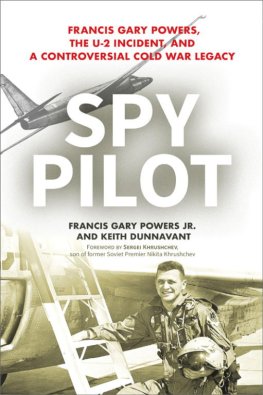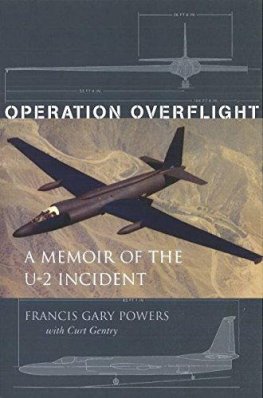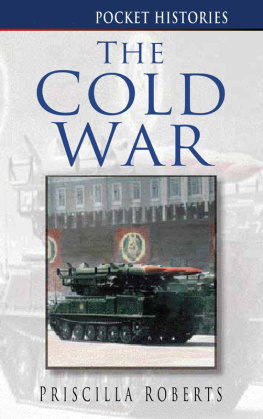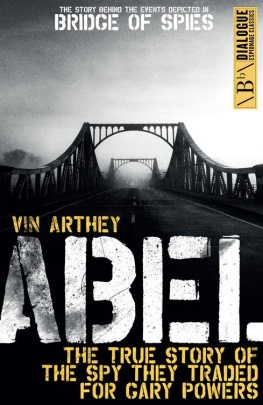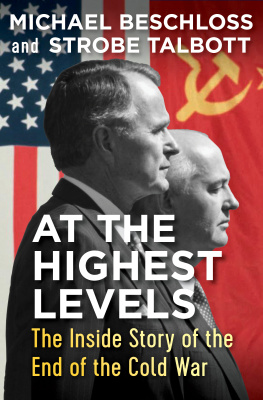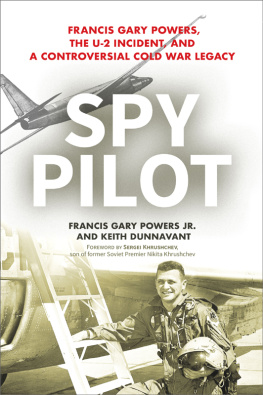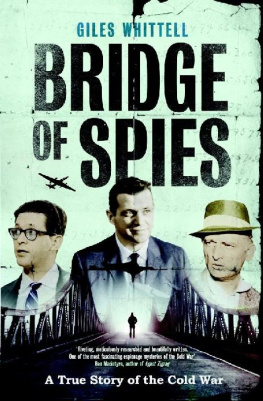Francis Gary Powers Jr.
and Keith Dunnavant
SPY PILOT
FRANCIS GARY POWERS, THE U-2 INCIDENT, AND A CONTROVERSIAL COLD WAR LEGACY
To my mom and dad for their unconditional love. I would like to dedicate this book to my wife, Jen, and our son, Trey, who provide me with daily inspiration. I love you. And also to my sister, Dee, for her support over the years. I love you too.
Francis Gary Powers Jr.
To my uncles who served their country honorably during the Cold War: Roy Evans (US Air Force), Carroll Hughes (US Navy), Robert Andersen (US Air Force), and Alvin Hughes (NASA).
Keith Dunnavant

In the interest of clarity, after the introduction, the narrative of Spy Pilot unfolds in the third person. Once Francis Gary Powers Jr. is born in 1965, the book is written in first person from his perspective.
FOREWORD
by Sergei Khrushchev
For more than two decades, I have watched Francis Gary Powers Jr. work tirelessly to honor and preserve the memory of his father, an ordinary American who was caught up in extraordinary circumstances.
I, too, have made great efforts to honor and preserve the legacy of my father, Nikita Khrushchev.
This is something Gary and I have in common.
During those difficult days of the Cold War, when my father led the Soviet Union (19531964), he managed to avert nuclear disaster while working with American presidents Dwight D. Eisenhower and John F. Kennedy. He helped move the two superpowers toward peaceful coexistence. Not peace, but peaceful coexistence.
Still, it was an acknowledged fact that both countries spied on each other. The war of secrets was important in helping East and West avoid armed confrontation.
It is interesting to me how two spies destined to be linked forever in the history books were treated very differently by their respective countries.
In 1957, Colonel Rudolf Abel was captured by American authorities in New York City and rightly convicted of espionage and sentenced to a long prison term.
In 1960, after being shot down while flying a U-2 spy plane over the Soviet Union, Francis Gary Powers was rightly convicted of espionage and sentenced to a long prison term.
Both men were patriots who loved their country, believed fervently in their nations ideals, and worked for the cause of world peace, before running out of luck.
When these two Cold War figures were exchanged in 1962, in a deal orchestrated by American lawyer James B. Donovan, their fates quickly diverged.
Upon his return to the Soviet Union, Abel was awarded the Order of Lenin, the USSRs highest civilian honor, and the state established a pension for him. He was considered a hero of the Soviet people.
By contrast, Powers returned to the United States under a cloud of suspicion.
Fortunately, Gary has dedicated much of his life to learning and communicating the truth about his father, including the writing of this important book about the Cold War.
Sometimes, it is the little things that linger, like the scruff of a fathers beard.
Every night, when I was a young boy, my dad came to my room, tucked me into bed, and kissed me on the cheek, the day-long growth of his nine oclock shadow pressing firmly against my still-smooth skin. There was love in that moment. There was security.
Ill never forget the last time we shared this ritual. It was the night before my world shattered.
In those days, Dad piloted a traffic helicopter for KNBC-TV, the NBC-owned station in Los Angeles. We lived very comfortably in the San Fernando Valley town of Sherman Oaks: father; mother; elder sister, Dee; and me. Life was good.
The first day of August in 1977 was an ordinary workday for my forty-seven-year-old father, but something went terribly wrong. His helicopter ran out of gas and crashed near a golf course in Encino. When someone from the station came to tell the family about the crash, I was left confused, thinking he must have broken a few bones and probably would be confined to a hospital bed for a few days. No one pulled me aside to reveal the awful truth.
Later in the day, with the house full of people and a somber tone permeating the place, I stood behind several adults in the living room, watching Channel 4s evening newscast. Jess Marlow was a giant in Los Angeles television, the personification of the stone-faced, detached anchorman. Hearing from this iconic figure that my father was dead, at the same time much of Southern California learned the news, was shocking and so was watching him choke up and actually shed a tear on live television. There was no crying on television in those days, but Marlow could not help himself. He had lost a colleague and a friend. I was devastated beyond words. My life would never be the same.
Several adults went out of their way to comfort me, including another dear family friend, the actor Robert Conrad. At one point, Conrad called me on the telephone and gave me what amounted to a pep talk: Your father was a good man, he said, stressing that, no matter what you might hear, your dad was a patriot who sacrificed greatly for his country.
Be proud of him. His legacy is now in you.
No matter what I might hear?
I tried to process what Mr. Conrad said, but on the day my father died, I was still too young and too sheltered to fully appreciate the burden associated with being Francis Gary Powers Jr., because I didnt really know my father. I didnt know him at all.
I knew the helicopter pilot. The man who patiently helped me with my homework. The man who carefully taught me how to shoot a .22-caliber rifle. The man who gently kissed me good night. But I didnt know what I didnt know.
In time, I would feel compelled to solve the riddle of Conrads cryptic consolation, to learn the haunting truth about my father.
Chapter One
THE RESTLESS HEART
One morning in the early 1940s, Oliver Powers loaded up his family in his pickup truck and plotted a course for the state line. With his wife, Ida, seated next to him and their children hunkered down in the open-air truck bed, Oliver carefully traversed the unforgiving dirt roads out of the isolated hollow where they lived, near the coal-mining company town of Harmon, Virginia. They were headed for a picnic in neighboring West Virginia, unable to imagine how a seemingly routine outing would profoundly shape the familys story.
Deeply rooted in a hardscrabble corner of Appalachia, far from the prosperity of the industrial age, the Powers clan lived in several different locations through the years, including an old family farmhouse adjacent to a dairy in the picturesque hills near the town of Pound, where Olivers ancestors had once struggled to make ends meet working the land. You could sell your produce, your milk, hogs, but to [find anybody to] sell it to, you had to cross that mountain on foot, said lifelong resident Jack Goff, pointing toward the nearby border with Kentucky. Cause there wasnt any road. The narrow, steep trail, known as the Buffalo Trace, once was used by Native American tribes who followed the Buffalo herds on their seasonal migration from the fertile grazing lands of the Ohio Valley through Virginia before settling for the winter in North Carolina. Even after the first road was built to connect the hollow to the outside world, the trail remained a source of adventure for the areas children.
After the first of the coal mines opened in 1913, in the nearby company town of Jenkins, Kentucky, James Powers, Olivers father, worked building houses for the miners, simple little wood-frame structures typically including four or five small rooms sealed by an outer shell of canvas. Coal-fired stoves heated the rustic domicilesthe precious rocks purchased, like most other necessities of life, at the nearby company-owned store. The surging demand for coal produced thousands of jobs across the area, paying as much as $7 per day, good money during the years of the Great Depression and World War II. In the context of that time and place, coal mining equaled opportunity beyond farming, even as it also represented a trap that swallowed many lives whole.

